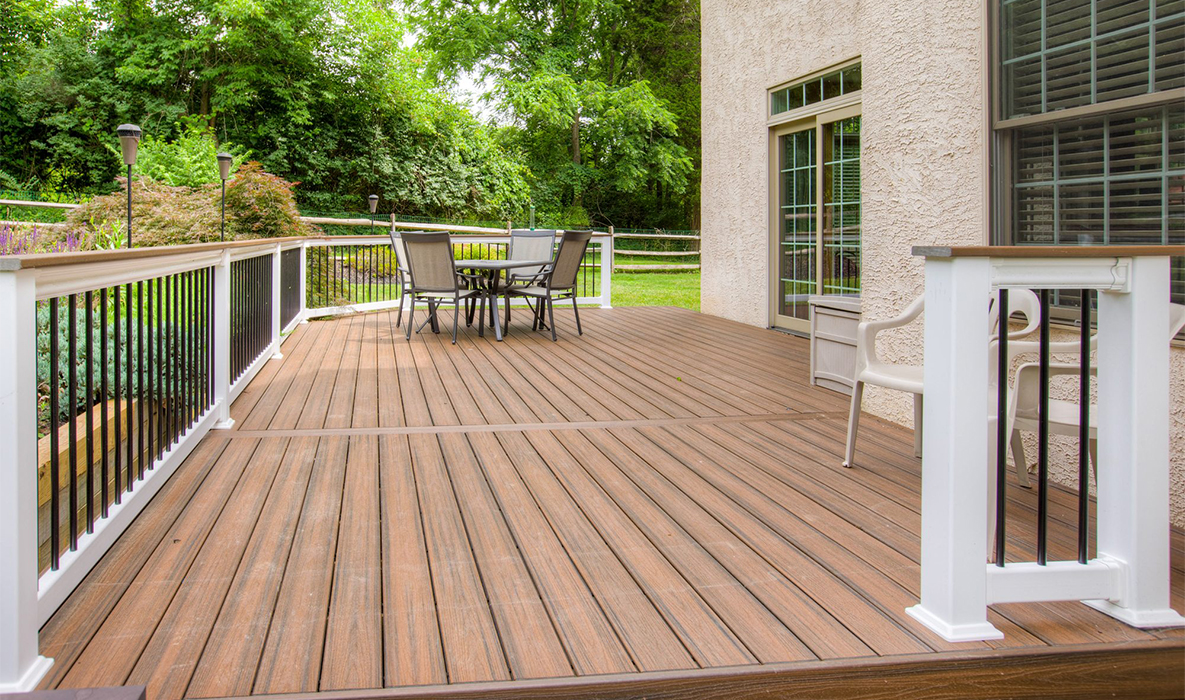
Deck resurfacing is a practical and affordable solution for homeowners looking to breathe new life into their worn-out outdoor spaces. Over time, decks are subjected to the harsh elements, causing wear and tear that can leave them looking unsightly and unsafe. While replacing a deck entirely can be a significant financial investment, resurfacing offers a much cheaper alternative. In this article, we will explore the benefits of deck resurfacing, the steps involved, and why it might be the right choice for you.
What is Deck Resurfacing?
Deck resurfacing is the process of renewing an old deck by replacing the worn or damaged surface boards while leaving the existing framework intact. This is typically done with high-quality materials that are designed to withstand the elements, such as composite decking, vinyl, or pressure-treated lumber. Deck resurfacing allows you to restore the look and functionality of your deck without the need for a full replacement, which can be costly and time-consuming.
Why Choose Deck Resurfacing?
1. Cost-Effective
One of the biggest advantages of deck resurfacing is the cost savings. Replacing a deck entirely can be expensive, especially if it involves tearing down the existing structure and rebuilding it from scratch. Resurfacing, on the other hand, focuses only on replacing the surface, which significantly reduces labor and material costs. In most cases, resurfacing can be done at a fraction of the price of a full deck replacement.
2. Faster and Less Disruptive
Another benefit of resurfacing is that it is much quicker than a complete deck replacement. Depending on the size and condition of the deck, resurfacing can be completed in a few days. This means that you can start enjoying your deck again much sooner, without the long wait and disruption that comes with a full rebuild.
3. Improved Aesthetic Appeal
If your deck has seen better days and is starting to show signs of aging, resurfacing is a great way to restore its visual appeal. By replacing the old, faded boards with fresh, new materials, you can completely transform the look of your outdoor space. Whether you opt for traditional wood or modern composite decking, resurfacing offers a simple way to enhance the beauty of your deck.
4. Environmentally Friendly
Deck resurfacing is also an environmentally friendly option. Rather than tearing down your existing deck and sending materials to a landfill, you’re reusing the original structure. Many resurfacing materials, such as composite decking, are made from recycled wood fibers and plastics, helping to reduce waste and promote sustainability.
5. Increased Safety
A deck that has been subjected to years of wear and tear can become unsafe. Loose boards, splinters, and weakened structures can pose a risk to you and your guests. Deck resurfacing ensures that your outdoor space is safe to use by replacing any damaged or rotted boards with new, sturdy materials.
The Deck Resurfacing Process
Resurfacing a deck is a relatively simple process, but it still requires some careful planning and preparation. Here’s a breakdown of the typical steps involved in deck resurfacing:
1. Inspect the Deck
Before beginning any resurfacing project, it’s essential to inspect the existing deck for any structural issues. While the surface boards may need to be replaced, the underlying framework (joists, beams, posts) should be in good condition. If the frame is damaged, it may need to be repaired or replaced, which can add to the cost and complexity of the project.
2. Remove the Old Deck Boards
The next step is to remove the old, damaged boards from the deck. This involves unscrewing or prying up the existing decking material. Be sure to take extra care to avoid damaging the underlying framework, as it will remain in place.
3. Prepare the Deck Frame
Once the old boards are removed, the deck frame should be inspected again to ensure there is no hidden damage. This is also the time to clean the frame and ensure that it is level and free from debris. If necessary, any repairs to the frame can be made before proceeding.
4. Install New Decking
With the frame in good condition, it’s time to install the new decking material. Depending on your choice of materials, this step may involve laying down composite boards, vinyl planks, or pressure-treated wood. It’s important to follow the manufacturer’s guidelines for proper installation to ensure a secure and long-lasting result.
5. Finishing Touches
Once the new boards are installed, finishing touches such as railings, trim, and stairs can be added. Finally, the deck can be cleaned and sealed to enhance its longevity and appearance.
Conclusion
Deck resurfacing is an excellent way to rejuvenate your outdoor living space without the high cost and disruption of a full deck replacement. It provides a faster, more affordable solution while still offering a fresh and improved look. Whether you’re looking to enhance the aesthetic appeal of your deck or ensure its safety, resurfacing can be the perfect solution. If your deck is starting to show signs of wear, consider resurfacing as a cost-effective and efficient way to bring it back to life.
